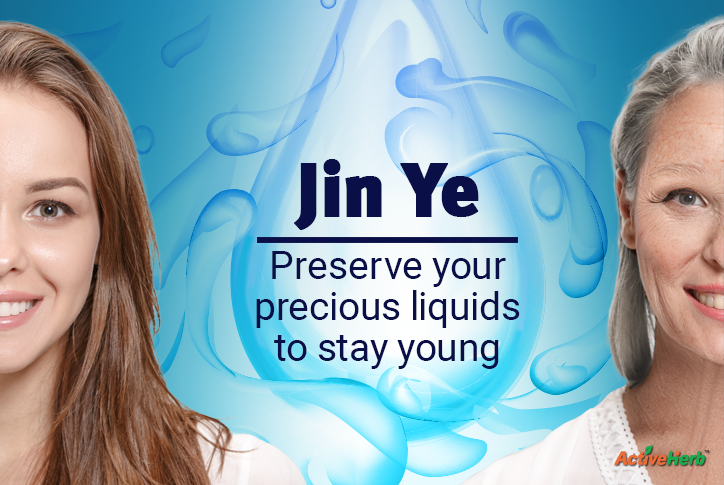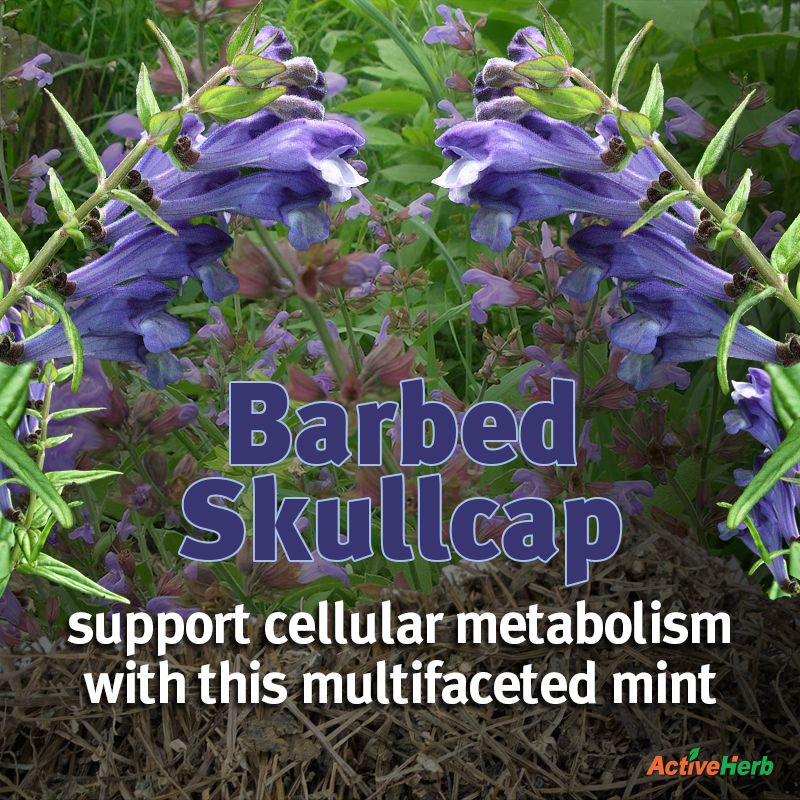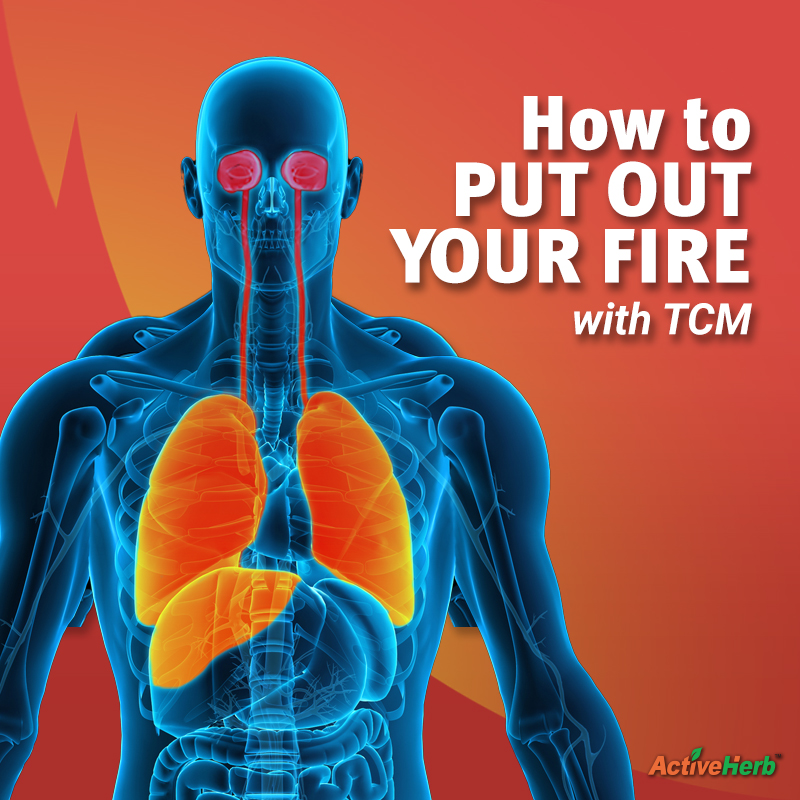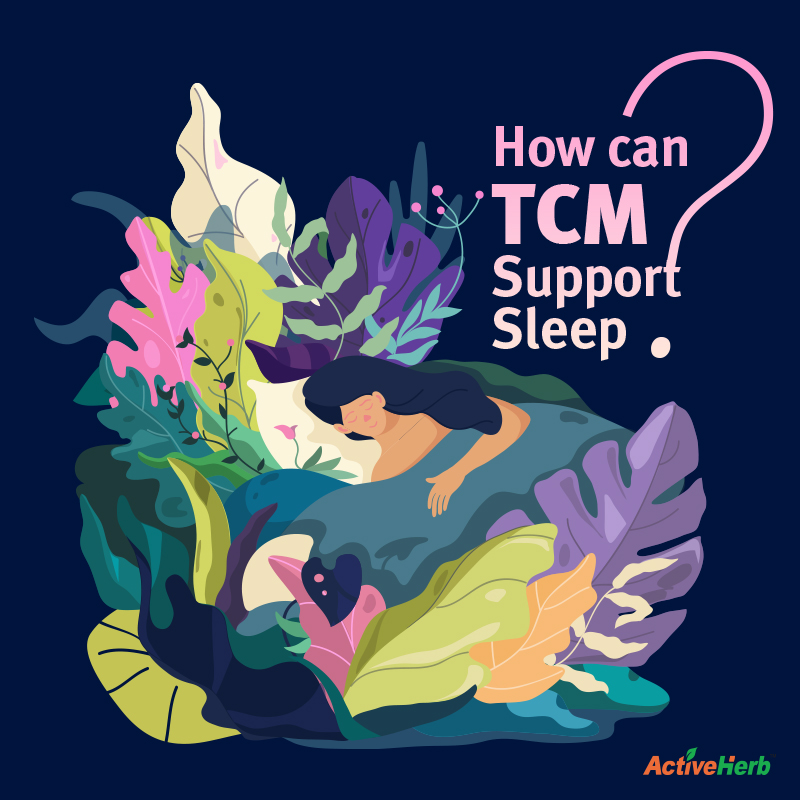Jin Ye: Preserve Your Precious Liquids To Stay Young

Unless you need a tissue, you probably never think about the liquids circulating through your body.
But constantly flowing through you are Jin Ye—all of your precious bodily fluids—with the exception of Blood.
Let’s take a moment and be grateful for the liquid substances that moisten our brain, sinews, muscles and joints and our skin and organs.
Being more mindful of your body’s Jin Ye—and how to preserve them—is one of the ancient secrets to longevity in TCM.
What is Jin Ye in TCM?
You probably learned as a child that your body is made mostly of water. But what your teacher didn’t tell you is that other precious substances account for nearly two-thirds of your overall make-up.
In the West, we tend to equate having enough fluid in the body as being well-hydrated. But there’s so much more to optimal health than making sure you drink enough water. You see, every single system in your body depends on having an adequate supply of precious substances in order to perform at peak capacity.
Jin Ye comprises all the liquids within your body. Do you want healthy joints well into old age? Then you need an adequate supply of synovial fluid.
Do you want strong digestion and elimination? Then you better have enough liquids to flush out the digestive organs.
If you want abundant energy, you need precious liquids to carry nutrients into the cells.
And if it’s more youthful, radiant skin you seek, you better hope that your skin is well moistened with an adequate supply of Jin Ye.
Jin Ye is actually a combination of two different types of bodily substances. “Jin” refers to light-weight substances that support healthy skin and muscles. “Ye” substances are thicker like oil and lubricate the brain, joints, and physical organs.
Jin Fluids For Healthy Skin
Jin fluids provide moist, clear, watery and light fluids to the skin. Jin liquids such as sweat are constantly flowing on the body’s exterior in tandem with Wei Qi, the main energetic force of TCM tha acts as your immune system’s first line of exterior defense.
There’s another vital role Jin fluids play. They help thin the Blood to prevent it from coagulating and forming Blood stasis, aka poor circulation.
You’ve heard the saying, blood, sweat and tears, which means putting in some hard work. Well, your body works very hard to keep up with the demand for producing and circulating these substances. In addition to sweat and tears, oher Jin fluids of the body include saliva and mucus.
But living our day to day lives, how can we be in control of our Jin fluid levels? How can you ensure that your body has the ideal amount of Jin fluids to moisten your skin?
The answer is by eliminating excess Phlegm through proper diet, exercise and other healthy lifestyle choices. Excess Phlegm occurs when TCM organs are unable to transform food into nutrients properly, and transport those nutrients through the circulation.
When it comes to exercising, make sure you don’t sweat too much. That’s because sweat is a precious Jin liquid and if you evaporate too much of it, you run the risk of weakening your immune system. (Just go for a long, brisk walk instead of running a marathon.)
The good news is that there’s also an easy way to clear excess Phlegm from the body: by using time-tested Chinese herbal formulas (like this one.)
Ye Fluids
These are the thick, dense and heavy fluids you also don’t give much notice to—until you have a bad case of indigestion.
Liquids that are involved in transforming nutrients in the interior of the body are Ye fluids. Bile, the green-yellow detergent-like substance that breaks down dietary fat is an example of a Ye fluid.
Ye fluids also include synovial fluid, the liquid that keeps your joints well-cushioned. In addition, Ye fluids also include the liquid that moistens the tissues surrounding your bone marrow as well as your brain and spinal cord (cerebrospinal fluid).
Now let’s address the same question in the previous section for Ye fluid.
How do you maintain an optimal amount of synovial fluid so that you can play a round of 18 holes or enjoy your favorite activities well into old age?
And how can you optimize your Ye fluids that moisten your intestines so that you can make straining-free, productive poops?
According to TCM theory, take care of your Spleen organ system. The reason why is because the Spleen of TCM initiates the processes involved in the transformation of Jin Ye fluids. Spleen dictates which fluids are pure and thus should remain in circulation—and which ones should be directed out the body via elimination. If you want well-lubricated joints, you need an optimally-functioning Spleen, which via the Lungs and Kidneys, plays a crucial role in water metabolism.
How to Have Optimal Jin Ye Fluid Levels
Want a vigorous Spleen system to ensure your Ye fluids are at optimal level?
Then check out the 100% plant-based herbal formula SpleenVigor, which may clear Dampness and Heat from the body. Dampness is actually a sign that there is too much Ye fluid.
We tend to think of aging as a pattern of deficiency, i.e. not enough of a certain substance. But as with all other principles in TCM, Jin Ye is all about having the right balance of precious bodily fluids.
Jin Ye: Conclusion
We can’t talk about precious bodily fluids without discussing water. In TCM, the Lungs, Spleen and Kidneys control water metabolism. To keep your digestion, joints and skin in tip-top shape, your organs need to be able to transport and distribute Jin Ye liquids without any disturbance.
The best way to assess your Jin Ye balance is to schedule an appointment with a TCM practitioner (licensed acupuncturist). You can also visit ActiveHerb.com’s Health Topics page to learn more.






